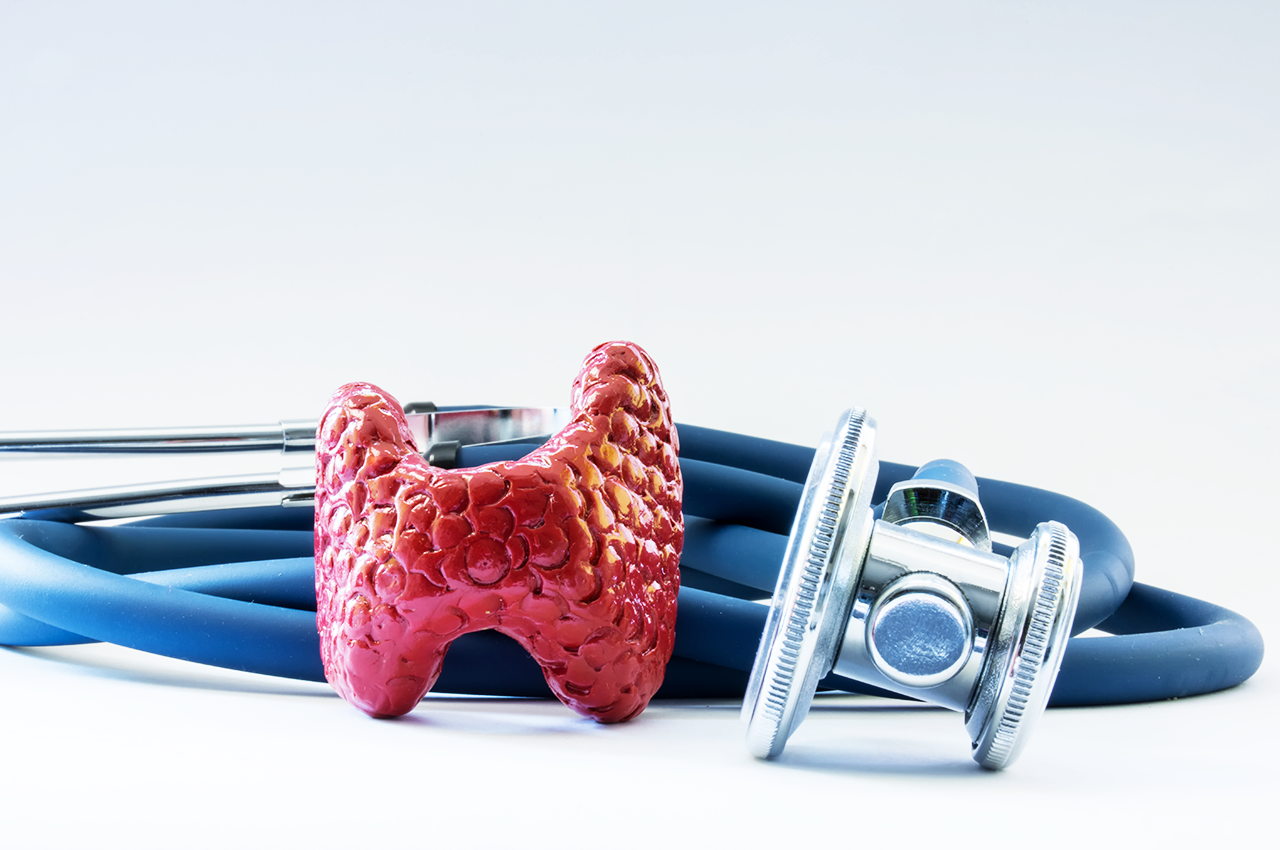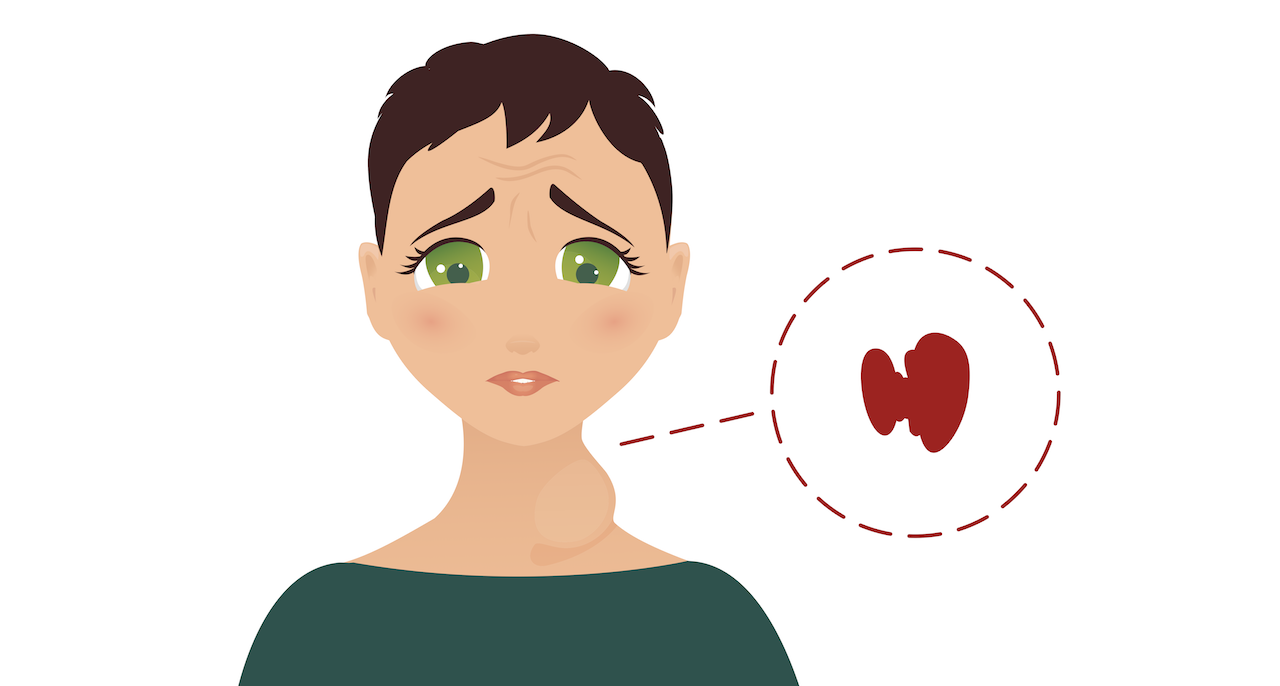Your thyroid is a small, butterfly-shaped gland in the front of your neck, but it plays an important role in your overall well-being.
Thyroid hormones control how your body uses energy, so they affect almost every organ in your body, even the rhythm of your heartbeat. The thyroid regulates your metabolism by releasing hormones into the bloodstream.
Graves’ disease develops when your immune system damages your thyroid gland by mistaking healthy cells for foreign invaders.
In response, the thyroid gland starts to make more thyroid hormone than your body needs; causing hyperthyroidism or an overactive thyroid.
So, what causes the disease?
While researchers aren’t sure why some people develop autoimmune disorders like Graves’ disease, a combination of genes and environmental factors is thought to be the cause.
A family history of Graves’ disease increases your chance of developing the condition, and in terms of environmental factors; you’re much more likely to develop Graves’ disease if you smoke.
Symptoms
Graves’ disease symptoms are gradual and take several weeks or months to develop. These can include behavioural changes like nervousness, irritability, anxiousness, restlessness and difficulty sleeping (insomnia).
Other symptoms include:
- Emotional swings
- Sweating
- Hand tremor
- Palpitations
- Unexplained weight loss (often despite increased appetite)
- Sensitivity to warm temperatures (feeling hot all the time)
- Muscle weakness
- Shortness of breath
Physical Signs and Symptoms
If Graves’ disease goes untreated, physical signs and symptoms may start to develop.
And these include:
- Goitre: A goitre is an enlarged thyroid gland. Anyone can develop a goitre, but the chances increase with age. When the gland isn’t making enough thyroid hormone, it compensates by growing. As the thyroid gets bigger; your neck may begin to look full or swollen. One of the common causes of this particular condition is an iodine deficiency, a trace mineral (a micro mineral that you only need in small amounts) your body needs to maintain thyroid function.
- Eye problems: Eye disease related to Graves’ disease is called Graves’ ophthalmopathy.
These problems vary from mild to very severe. Symptoms include red eyes, tearing, a feeling of sand or dust in the eyes, and sensitivity to light. In more severe cases, one or both eyes may protrude from the eye sockets. This is called exophthalmos, which can make you appear as though you are staring. Graves’ disease causes an inflammatory response in the eye muscles; which causes the muscles and tissues in that area to swell. - Skin thickening: Some may develop thickening of the skin over the front of the lower leg called the tibia. The disorder causes skin lesions that are patchy and pink. Other parts of the skin rarely get affected.
Diagnosis
A diagnosis of Graves’ disease is based on detailed patient and family history, a thorough clinical evaluation, and specialised blood tests that measure levels of thyroid hormone and thyroid-stimulating hormone.
Your doctor may want to measure the thyroid-stimulating hormone (TSH), T3 (triiodothyronine), and T4 (thyroxine) hormone levels in your blood. T3 and T4 are the major hormones produced by your thyroid. TSH, which is released by the pituitary gland, tells your thyroid to produce T3 and T4.
If your doctor can’t definitively diagnose Graves’ disease after looking at your TSH, T3, and T4 levels, they may refer you to a specialist for further tests or treatment.
Reference:
- https://www.healthline.com/health/graves-disease
- https://www.health.harvard.edu/a_to_z/graves-disease-a-to-z
- https://www.niddk.nih.gov/health-information/endocrine-diseases/graves-disease
- https://www.endocrineweb.com/conditions/graves-disease/graves-disease-overview
- https://www.endocrineweb.com/conditions/graves-disease/graves-disease-diagnosis


